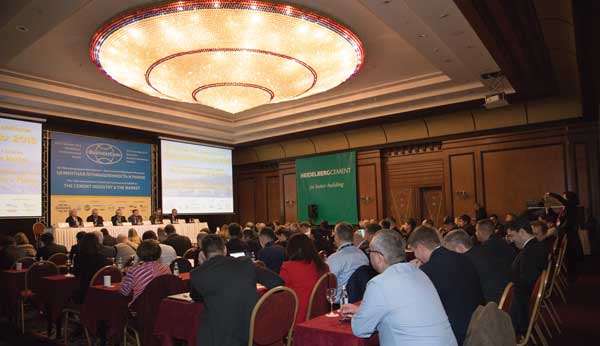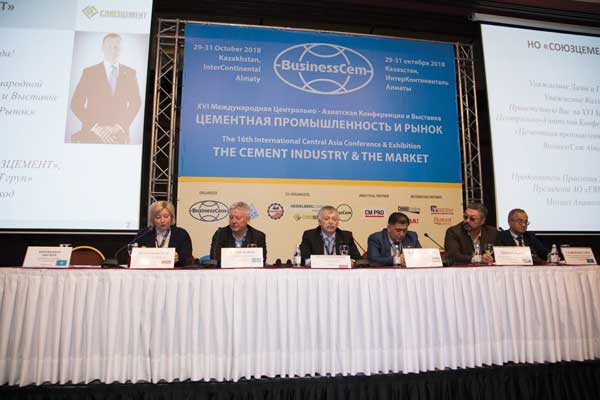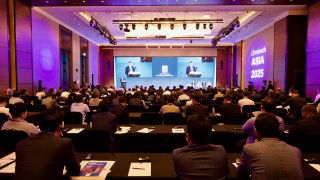BusinessCem Almaty 2018, the 16th International Central Asia Conference and Exhibition, was held at the InterContinental Almaty, Kazakhstan, between 29-31 October. Around 100 participants gathered to explore the latest industry developments taking place in the region.

Around 100 delegates gathered to update their knowledge with the latest
developments in the central Asian cement industry
The conference was opened by Evgeny Valyukov, general director of BusinessCem, who welcomed delegates to Almaty and the conference itself. Mr Valyukov noted how the event was the 8th BusinessCem event held in Kazakhstan’s largest metropolis, Almaty, with the others held in neighbouring Uzbekistan.
Conference programme
Maral Tompiev, president of the Kazakhstan Association and Industry of Building Materials, continued the morning by noting the importance of the country’s cement industry and how its development relies on the latest production technologies and responsible management of industrial resources. According to the Nurly Zhol economic stimulus plan announced by Nursultan Nazarbayev, the president of Kazakhstan, over 4000km of concrete roads and 1.5m dwellings will be constructed for the population over the next 15 years. Mr Tompiev also considered how cement consumption had reached 10.5Mt in 2017, almost double that of 2011. The country’s cement plants have a design capacity of over 12Mta.
Erbol Akymbaev, QazCem, looked at how Kazakhstan was facing a paradoxical issue with its imports. In 8M18 the country had a significant amount of surplus and yet was still importing products. Its 850,000tpa cement exports to Uzbekistan are also expected to stop within two years as the latter country becomes fully supported by its own industry. In addition, he added, the cement industry is expected to achieve a 15 per cent reduction in CO2 emissions by 2020.

The conference provided the latest market reports
and examined manufacturing solutions
One of the main concerns Kazakhstan is facing is that of counterfeit cement, which only carries a small punishment, an issue highlighted by Natalia Kozhina, legal expert at SoyuzCement. Ms Kozhina noted how international collaboration is required to stop the spread of fake cement. In Russia mandatory certification of all types of cement came into force in 2016. As a result, the level of counterfeit cement on the market has fallen significantly.
Evgeny Vysotsky, CMPRO, focussed on the Russian market, which has approximately 104Mta of production capacity (including grinding facilities). Around 90 per cent of cement imports originate from Kazakhstan and Belarus. According to the company’s estimates, capacity utilisation is currently low at 56 per cent, while the highly competitive market is experiencing price wars. Therefore, further investment is unlikely to return a profit and instead, the outlook suggests that consolidation between players is required.
Aside from market reports, the programme also examined the latest manufacturing solutions of a number of equipment suppliers, including FLSmidth, Köppern, Christian Pfeiffer and Lechler.
Exhibition
Furthermore, a technology exhibition, featuring booths from Gebr Pfeiffer, FLSmidth and CNBM Smart, allowed delegates to expand on the conference programme and communicate directly with suppliers.
Next event
BusinessCem Moscow, the 30th Anniversary International Conference and Exhibition, will be held on 15-17 April 2019.
This article was first published in International Cement Review in December 2018.
